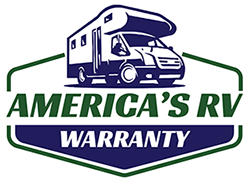
Buying an RV can be a huge decision. RV owners spend hours researching makes, models, and features to pick out their vehicle. They often visit RV dealerships to see their options in person. They have inspections performed and workout payment options. Then, after they've checked every box and they're ready to sign their paperwork and drive away, the salesperson mentions an extended warranty.
For many RV buyers, especially first-time buyers, the offer of a warranty prompts confusion and lots of questions. Do I really need a warranty? How do they help me? Will I ever use it? The purchasers often have little time to consider the pros and cons and review their options.
In some ways, it makes sense to leave the RV warranty for last. The price and plan details will change depending upon the make, model, age, and mileage of the RV. However, many RV owners who buy a warranty from the dealership pay too much for a policy they may not understand.
RV warranties protect RV owners from expensive repair costs when things on their RV break down or malfunction from everyday use. Warranties are popular among RV owners, who enjoy the peace of mind and budget protection.
Just as every RVs is unique, different RV warranty plans offer different features. RV buyers may spend too much if they aren’t aware of these features.
Note: An RV warranty is not RV insurance, which covers the cost of damage and accidents. The most basic RV insurance policy is liability insurance, which is required for motor homes.
RV dealerships often do an excellent job when it comes to pairing buyers with RVs. But being an expert in RV sales doesn’t mean they are good at pairing RVers with RV warranties.
Warranties are big business for dealerships. Because of profit margins, dealers sometimes make as much off the sale of the warranty as they do from the RV sale. The more the RV warranty costs, the more money they make–it’s not a situation set up to benefit the buyer.
Most RV dealerships sell only one RV warranty company's products. Even then, they may not fully understand the coverage they sell. After all, the dealer does not have to fulfill the policy. That’s the warranty company’s job.
At the dealership, buyers may not even see the full details of the policy. Salespeople sometimes rely on brochures to go over the plan details.
If salespeople do show customers the terms and conditions, it’s often at the point of sale when buyers already have tons of paperwork to look through. In that situation, it’s difficult to make an informed decision.
Dealers may not present every plan option to the customer, so customers may end up going with a deductible, plan length, or plan type that is less than ideal. Dealers may be tempted to sell the plan that earns the highest commission instead of the plan that's best for their customer.
The result is a marked-up product that may not be the best fit for the customer. If the buyer finances the warranty price with the cost of the RV, then the buyer also pays interest on the policy.
The short answer: they don’t know any better. Many RV buyers choose to buy from the dealership because it seems simple. RV buyers may not know where to go to buy it on their own. First-time RV buyers may not even know it’s possible to buy your policy directly from a warranty company.
But an RV warranty company can help you understand the coverage and can tailor a plan to your needs. You’ll receive better protection for less money.
So how do RVers get affordable coverage for their rigs? These days, many buy extended RV warranty coverage directly from a warranty provider. This is sometimes referred to as an aftermarket warranty.
Buying directly cuts out the middleman, reducing the total cost of operating your RV. After all, RVs are already expensive–and don’t forget about insurance
An aftermarket warranty can tailor coverage to your needs and your vehicle. It’s easy to get different quotes based on features like payment structure, coverage level, and plan length. You can have peace of mind and a better ownership experience for less money.
That’s because warranty companies help customers understand the coverage. At ARW, we want our customers to know all the important details when they sign up. That’s how our customers remain our customers.
ARW keeps customer satisfaction front-and-center with our dedicated account managers. The salesman who sets up your policy is always available to ensure the sales and claims processes go smoothly. You’ll always have a direct line of communication and customer service for any questions you may have.
The only downside might be that you’ll have to fill out some paperwork that your RV dealer may have otherwise filled out for you.
Yes. It won’t make a difference whether you buy the warranty before or shortly after the sale of a new RV. This is true whether you are purchasing a travel trailer or a motorhome.
If you are buying a new RV, you may be tempted to wait until your manufacturer’s warranty has expired to purchase an aftermarket RV warranty. Getting your warranty while your RV is still shiny and new, has a few perks that may make you rethink waiting.
First, new RVs are eligible for longer warranties. For example, a brand-new warranty may be eligible for an eight-year policy, whereas an RV that’s one year old may not be eligible for a seven-year policy. The coverage is also least expensive when the RV is newest.
Plus, a manufacturer’s warranty is not equal to an aftermarket extended RV warranty. Manufacturer’s warranties do not include labor, and may not include all the items an extended warranty covers.
Yes. You can get the warranty when you buy a used RV or when you already own it. In this case, it makes little difference whether you buy warranty coverage before or after your RV purchase.
Because used RVs are more likely to need repairs than new ones, expect the coverage to be more expensive or the plan length to be shorter.
Neither warranties nor liability insurance are legally required on travel trailers. But when you take your rig to the RV service center for repairs for everyday breakdowns, a warranty helps. ARW covers towables such as travel trailers, fifth wheels, and toy haulers.
Motorhomes are eligible for both the coach and automotive coverage. This applies to every RV type: diesel motor home (aka class a diesel pusher), class a gas motorhome, class c motorhome, class b, etc.
Coverage is available regardless of RV type, sale price, or brand. Aftermarket warranty companies work with all brands: Winnebago, Jayco, Thor Motor Coach, Coachmen, Forest River RV, etc.
While we don’t believe a motorhome dealer is best-suited to make warranty decisions for RVers, we don’t believe RV dealers are dishonest or greedy. Most dealers work hard to match people with RVs that are going to enrich their lives.
Dealerships face massive overhead costs and expenses, so it’s only natural to seek out sources of added revenue like RV warranties. And just as RV dealerships have the knowledge and experience to put RVers into the perfect rig, warranty companies have the expertise to provide RVers with the right plan.
ARW works with dealerships across the country, so if you are planning to buy from the dealer, make sure that they offer ARW plans. If you are a dealership and would like to partner with ARW, check out our dealership page to learn more.
